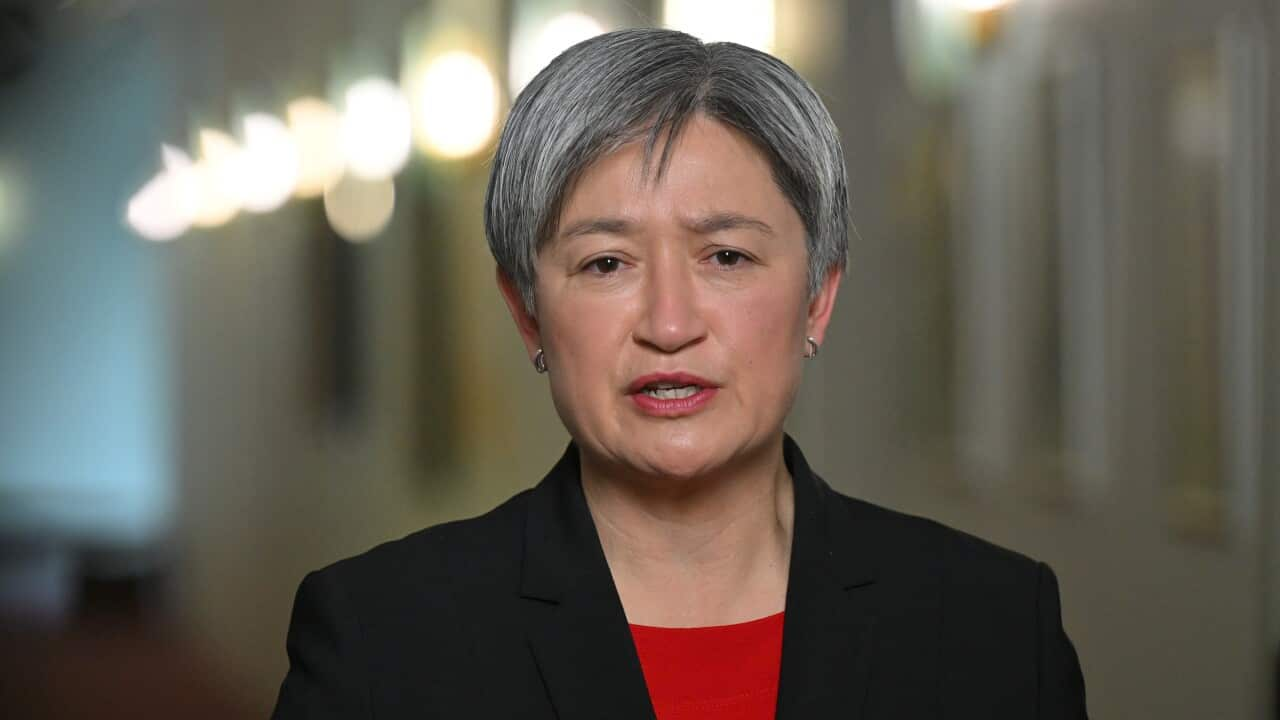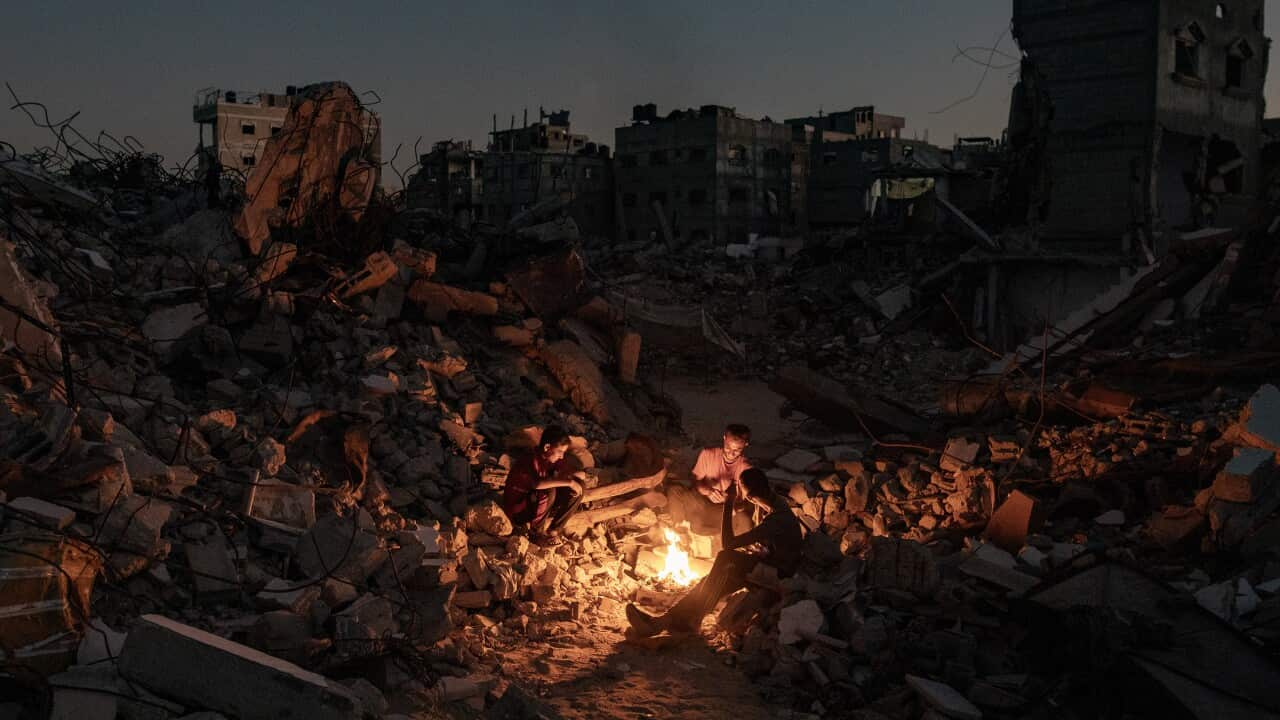Experts and world leaders have expressed grave concerns for Gaza after Israel passed legislation banning the from operating in the country.
Israel's legislature, the Knesset, passed two bills, including one barring the (UNRWA) from operating within Israel and another that bans Israeli authorities from any contact with the agency.
The politicians who drafted the law cited the alleged involvement of some UNRWA staffers in the on southern Israel. The agency said .
The legislation has alarmed the UN and some of Israel's Western allies, who fear it will further worsen the already dire humanitarian situation in Gaza.
Foreign Minister Penny Wong wrote on X that UNRWA does "life-saving work" and Australia "opposes the Israeli Knesset's decision to severely restrict" its operations.
"On Sunday, Australia joined Canada, France, Germany, Japan, South Korea and the UK to urge Israel's Knesset not to proceed with this legislation," she said.
In a joint statement, the foreign ministers of these countries said that, without the work of UNRWA, "the provision of such assistance and services, including education, health care, and fuel distribution in Gaza and the West Bank, would be severely hampered if not impossible".

Foreign Minister Penny Wong wrote on X that Australia "opposes the Israeli Knesset's decision to severely restrict UNRWA's work". Source: AAP / Sarah Yenesel/EPA
While a UN Human Rights Council special rapporteur found there are "reasonable grounds" to believe that Israel is committing genocide against Palestinians in Gaza, Israel has denied this claim.
What does UNRWA do?
UNRWA began operations in 1950 following the 1948 Arab-Israeli war, and it provides support to Palestinians displaced by that conflict and their descendants, amounting to 5.9 million people.
It employs tens of thousands of workers and provides education, medical care, relief and social services to Palestinians, and it is the main provider of humanitarian aid to Gaza.
Professor Donald Rothwell, an international law expert from the Australian National University, said it is "widely accepted" that UNRWA does "exceptionally important humanitarian aid work".
"That aid work not only extends to Gaza, but it also extends to the West Bank and the remainder of the occupied Palestinian territories," he told SBS News.

Gazans face severe shortages of food, water, fuel, medicine and proper medical care. Source: AAP / Haitham Imad/EPA
"It opposes the UN Charter and violates the State of Israel's obligations under international law," he said.
Lazzarini said the decision will deprive over 650,000 girls and boys from accessing education, "putting at risk an entire generation of children".
"These bills increase the suffering of the Palestinians and are nothing less than collective punishment," he said.
A tense relationship
The agency has long had tense relations with Israel, but ties have deteriorated sharply since the start of the war in Gaza, and Israel has repeatedly called for UNRWA to be disbanded, with its responsibilities transferred to other UN agencies.
Dr Martin Kear, a lecturer in international relations from the University of Sydney, told SBS News that increased pushback from the Israeli government against UNRWA has been evident since around 2014 due to the way it has communicated the humanitarian situation in Gaza to the world.
"It was letting the world know of the dire situation in Gaza," he said.
"Israel controlled everything, all information going in and out of Gaza. It didn't want the world to know about the dire situation and its activities."
Tensions between UNRWA and Israel's government have intensified since Hamas' October 7 attacks, which killed around 1,200 people, according to Israeli tallies.
Israel accused UNRWA staff members of participating in the attacks, and following an investigation, some evidence was found that nine UNRWA staff members "may have been involved" in the attacks.
UNRWA condemned the October 7 attacks "in the strongest possible terms" and terminated the contracts of the nine staff members who were allegedly involved in it.
The agency has around 30,000 staff across the region, including 13,000 in Gaza.
"If the United Nations is not willing to clean this organisation from terrorism, from Hamas activists, then we have to take measures to make sure that they cannot harm our people ever again," Israeli politician Sharren Haskel said.
Rothwell said UNRWA had "done its due diligence" in its investigations.
"We need to be really cautious here about trying to think that there's any ongoing Hamas engagement with UNRWA post-October 7," he said.
LISTEN TO

Attack on UNRWA school condemned, but Israel says it was a Hamas base
SBS News
13/09/202405:24
Kear said the accusations Israel made against the agency should be taken with a "grain of salt" and were a "deliberate attempt to undermine the legitimacy of UNRWA because it is that independent voice within the Gaza Strip".
"This is about Israel trying to delegitimate UNRWA and get rid of it within the occupied territories," he said.
What this means for UNRWA's work
Israel's bombardment of Gaza has killed over 42,500 Palestinians, with another 10,000 unconfirmed dead thought to lie under the rubble, according to Gaza health authorities.
Aside from mass destruction, Gazans face severe shortages of food, water, fuel, medicine and proper medical care.
Israel's ban could severely restrict UNRWA's ability to deliver humanitarian aid.
To operate, the agency relies on cooperation with Israel — such as issuing permits to the agency's international workers or coordinating its shipment movements with the Israeli military.
Thus, prohibiting Israeli authorities from contacting UNRWA could make it extremely difficult — if not impossible — for its work in Gaza and the West Bank to effectively continue.
Rothwell said the removal of UNRWA staff from Gaza or the West Bank would leave an "absolutely enormous humanitarian aid vacuum in the occupied Palestinian territories".
"It's unclear as to who exactly would seek to fill that vacuum given Israel's control over humanitarian actors within that area," he said.
Rothwell said this latest decision by Israel is another example of its hostility towards the UN and its agencies.
In early October, Israel's foreign minister , banning him from entering the country.
"At one level, this step seems astonishing, but on the other hand, it's really just reflective of a continued Israeli campaign against UN agencies and institutions," Rothwell said.
With additional reporting by Reuters














